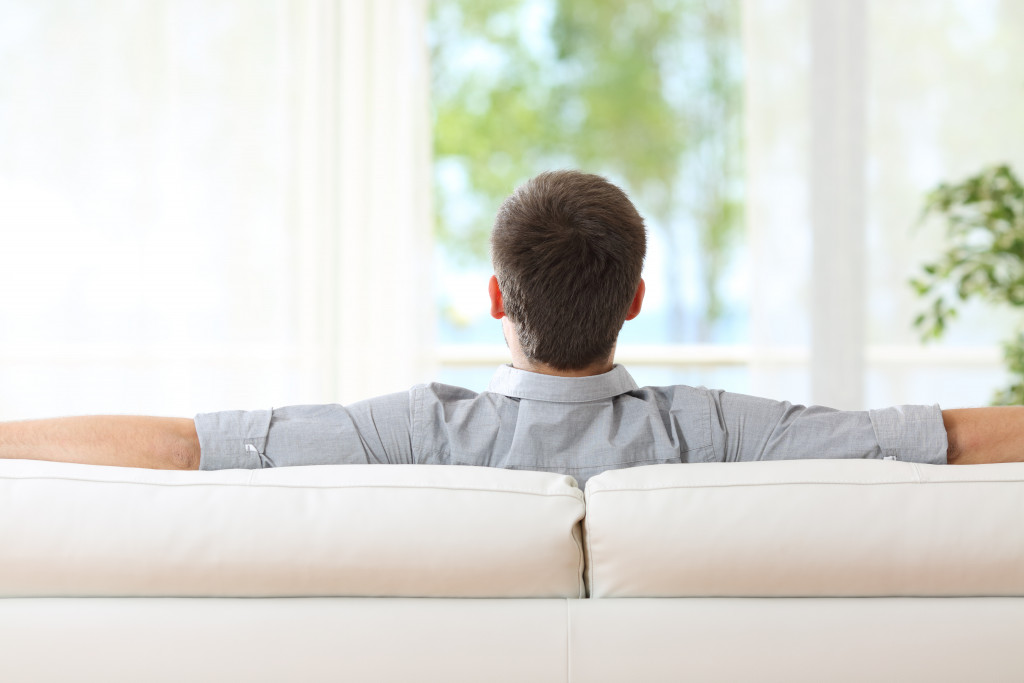At the beginning of the COVID-19 pandemic, the thought of staying at home for a few weeks was a dream for everyone. Imagine being away from work, school, and all the pressures of the outside world. All the extra time is an opportunity to rest and accomplish long overdue hobbies. But as the weeks became months, people realized that spending more time indoors is not a bed filled with roses.
Solitude has a bad rap in a fast-paced society. People associate being alone with loneliness. The truth is, having time for yourself is a perfect time for self-reflection. During the lockdown, people grabbed the chance to learn new skills while at home. Many take self-care seriously by creating homemade skincare mixes and learning new hair care techniques such as maintaining hair extensions or sporting a new haircut.
Whatever keeps you busy during this pandemic, it’s essential to value the time you devote to yourself. While being apart from your social circle can be stressful, these challenges prove why alone time is critical in these uncertain times. In this article, we’ll delve deeper into the reasons why people should spend more time alone and its implications on well-being.
Boosts creativity
Being alone is a perfect opportunity to enhance creativity. While collaborative brainstorming is a great way to bring fresh ideas, a study found that doing it alone improves your ability to solve complex problems. Group work is all about creating a sense of belongingness and achieving consensus, but solo works drive ingenuity without social pressure. Sometimes, it feels goood to allow your mind to wander without any outside influences.
A recent study explains that alone time enhances brain function by fueling one’s creative process. In fact, those who purposely withdraw from the crowd to be alone often end up as highly creative individuals.
In a recent study published in Nature Communications, loneliness or perceived social isolation results in a spike in activity in neural circuits responsible for imagination. So if the person lacks social stimulation, the brain will activate the creative network to fill the gap.
Besides creativity, alone time helps in building overall mental strength. This is particularly true for individuals who mastered the art of solitude over long periods. Making time to sit with your fears, anxiety, thoughts, aspirations, and other emotions allows you to be mentally prepared and strong to face whatever life throws at you.

Encourages personal exploration
To be comfortable about being alone means more freedom and time to fully explore your passions without distractions. You can try other hobbies, research exciting topics, acquire new knowledge, and practice new ways of self-expression.
When you’re engaged with a group, you’re more inclined to comply with whatever they say or do. Often, the actions, behaviors, or decisions they make do not reflect your own. To prevent conflicts, you choose to compromise your beliefs and allow them to take control of the situation.
With the responsibilities and pressures of daily life, how often do you decide on a situation by just yourself? Grab opportunities that make you extra fulfilled, satisfied, and happy. Having time for yourself means the chance to explore other things without any judgment and pressure. Alone time is also critical for personal development and growth. Instead of wasting your time thinking about the opinions, interests, and needs of others, some quiet time alone allows you to focus on your well-being.
Improves social relationships
The secret to strong relationships is when each individual knows how to look after themselves.
Sometimes it is true that a bit of absence makes the heart grow fonder.
Most people have negative connotations about being alone. Some think it’s lonely and depressing, while others think it’s a difficult situation to be in. It’s worth noting people have different personalities. It’s not just about being an introvert or extrovert. A person may prefer to be alone right now, but they’d rather spend the weekend with friends.
Believe it or not, being alone helps in improving interpersonal skills and the quality of relationships. Having more time alone allows you to understand your personal beliefs, choices, opinions, and relationships with those around you. You’ll also learn to appreciate your existing relationships after spending some alone time.
In today’s socially connected world, solitude has turned into a lost art. In reality, seeking solitude brings a lot of healthy aspects to our health and well-being. The idea of alone time doesn’t mean you’re simply wasting time. Our discussion above has revealed the many rewarding benefits of being alone, so never feel guilty about enjoying alone time now and then.



